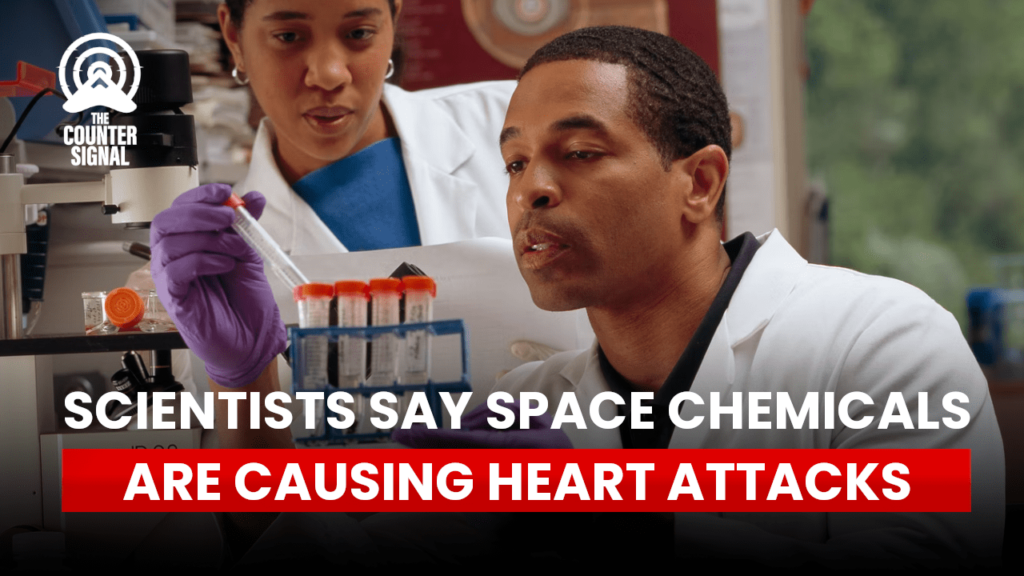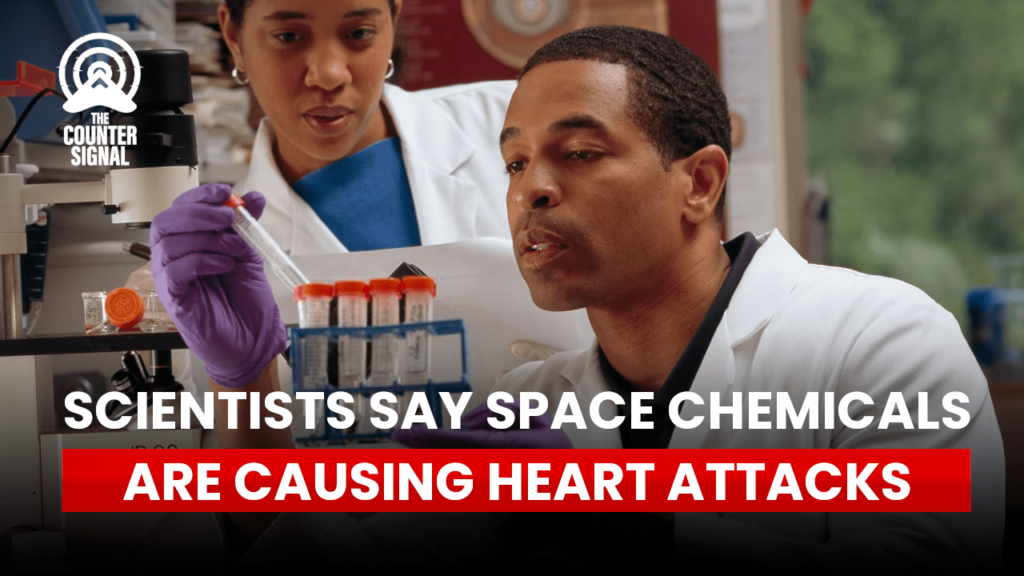Far, far away in the distant reaches of Earth’s atmosphere, scientists have finally homed in on a possible cause of the sudden rise in heart attacks around the world: space chemicals.

According to an article from Daily Mail, scientists have identified an entirely new class of chemical compounds that form in Earth’s atmosphere called hydrotrioxides.
Even though scientists believe that the chemical compounds needed to form hydrotrioxides have always existed in the atmosphere, they say that the compound may be able to penetrate aerosols, which can lead to respiratory and cardiovascular diseases, including heart attacks.
“They will most likely enter aerosols, where they will form new compounds with new effects,” said Professor Henrik Kjærgaard.
“It is easy to imagine that new substances are formed in the aerosols that are harmful if inhaled. But further investigation is required to address these potential health effects.”
“These compounds have always been around — we just didn’t know about them. But the fact that we now have evidence that the compounds are formed and live for a certain amount of time means that it is possible to study their effect more targeted and respond if they turn out to be dangerous,” added Prof. Kjærgaard.
PhD student and co-author Jing Chen concurred, adding that the compounds are “surprisingly stable.”
“It’s quite significant that we can now show, through direct observation, that these compounds actually form in the atmosphere, that they are surprisingly stable and that they are formed from almost all chemical compounds. All speculation must now be put to rest,” said Chen.
Even more frightening, not only do scientists believe the newly discovered compound could be responsible for causing respiratory and cardiovascular diseases, but it may also be spurring climate change!
“As sunlight is both reflected and absorbed by aerosols, this affects the Earth’s heat balance – that is, the ratio of sunlight that Earth absorbs and sends back into space,” said PhD student and co-author Eva Kjærgaard.
“When aerosols absorb substances, they grow and contribute to cloud formation, which affects Earth’s climate as well.”













